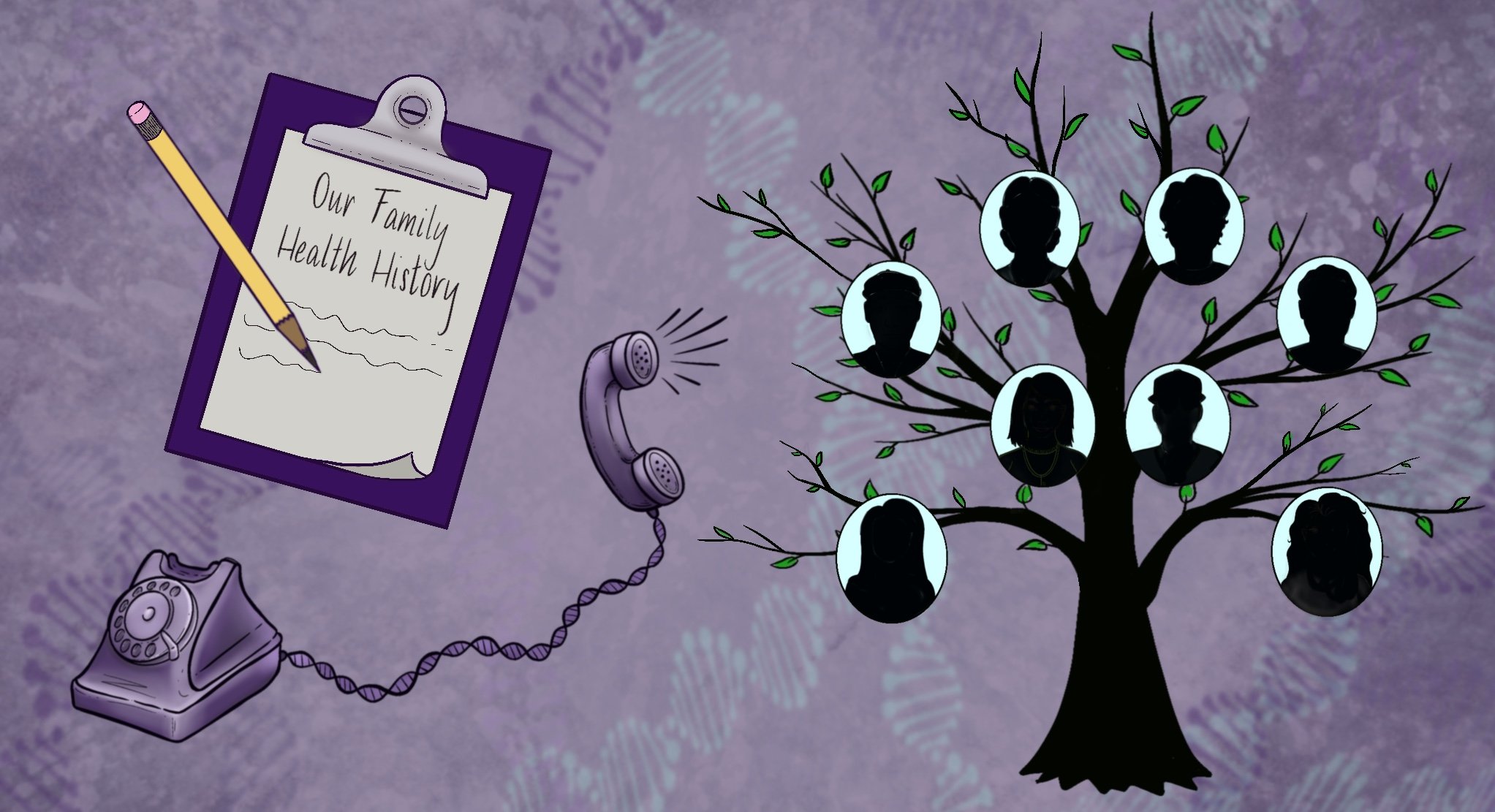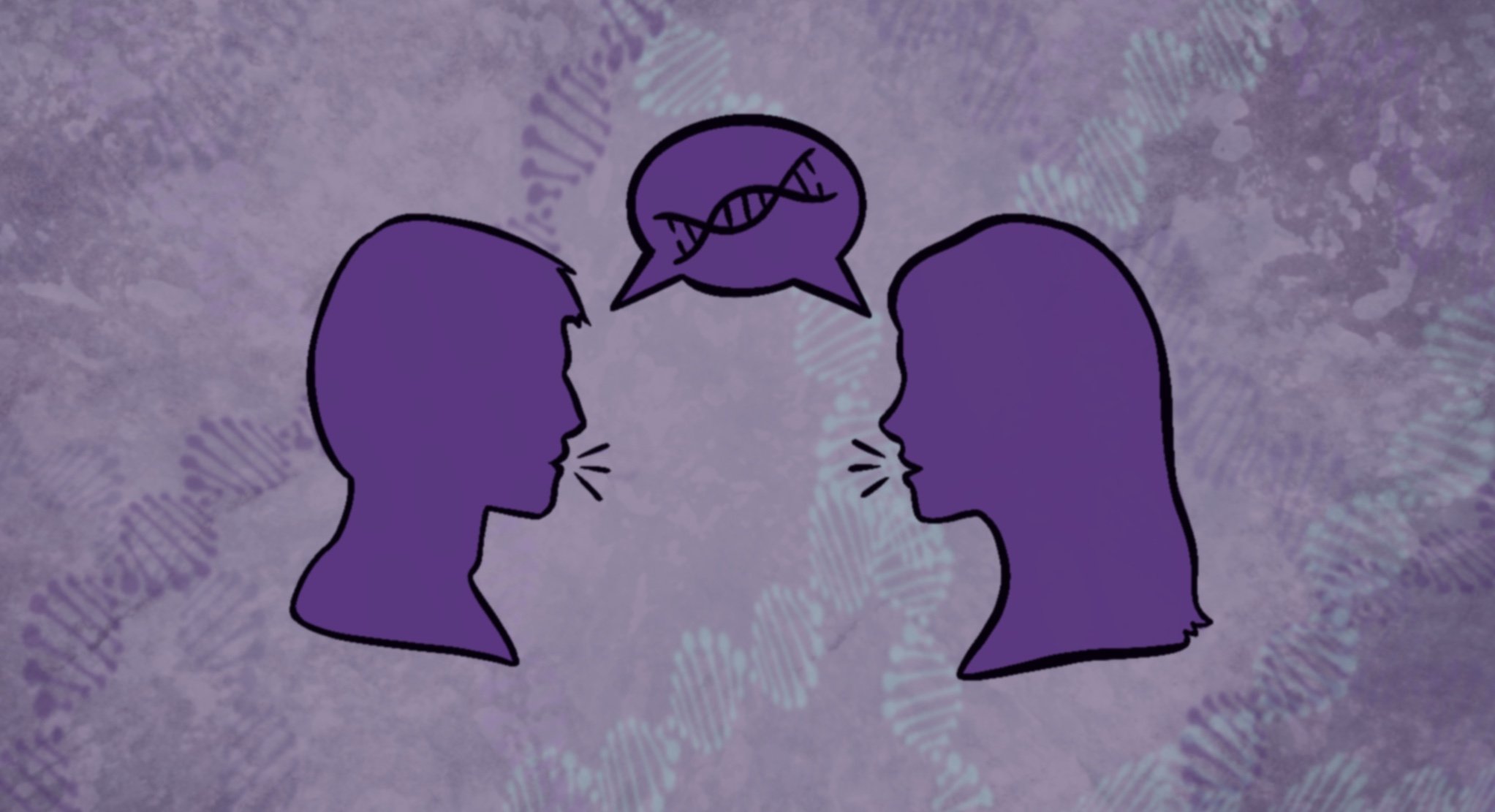Ask a GC: Family Health History (Chapter 1)
How to talk to relatives about your family health history
How to talk to your relatives about genetic test results
Series Overview: Doctors usually turn to genetic testing to screen for health risks or spot diseases that are hard to diagnose, but the available education surrounding what these tests actually do is often bogged down with confusing scientific language that makes it difficult to understand. This is where Genetic Counselors (GC) come in to provide personalized assistance to both patients and their families. My name is Elizabeth and I have a Masters degree in Human Genetics & Genetic Counseling, which means that I spent 2.5 years after 4 years of college learning how to become a translator of the alphabet soup that is Genetics and explain it in a way that makes sense to everyone. If you are here reading this blog you may be dealing with some health complications that do not have a known cause, your doctor may have suggested genetic testing and/or counseling to learn more about your risk factors for disease or symptoms your body is showing, or you may just be curious about this type of testing in general. Ask a GC is a blog series that aims to empower patients (like you!) to know WHO to ask, WHAT to ask, WHEN to ask it, and WHERE to find answers about your Genetics questions and how they play into your healthcare journey. As a Genetic Counselor who has seen all types of genetic disease both professionally and personally, I aim to bring you this information with compassion and understanding as you navigate the interesting but sometimes overwhelming world of Genetics!
Please note: Though GenomicMD's Ask a GC series is written under the guidance of healthcare professionals and may refer to recent medical recommendations, it is not intended to be used as personalized medical advice. For medical evaluation or to develop a healthcare plan, please speak with your doctor or healthcare provider.
It is amazing to sit and think about how our society has gone from under-appreciating Gregor Mendel’s initial work with plant genetics to fully mapping the human genome and beyond in just a few generations. Medical science continues to make technological advances in genetics every day that help provide patients with much needed answers to their healthcare questions. With these advances come opportunities for medical teams to take a more personalized approach to healthcare, tailored to an individual patient’s risk for disease. This is often called precision medicine, and as it becomes more common many people - some with family histories of certain diseases or conditions - choose to undergo genetic testing.
Once patients have their genetic test report in hand, the next recommendation from a genetics provider is often to share their results with family members to add it to their family health history. This is sometimes easier said than done, as every family connection and communication style is unique. This blog will expand on the family health history discussion to give advice on the other side of this conversation - what to do when you need to communicate with family members about your own genetic test results.
Before taking a genetic test

Talking with family about your medical history and why you are getting genetic testing beforehand may make sharing results easier when the time comes. Keep in mind that for some people, knowing that they may receive an “increased risk” result can cause them to feel grief, anger, anxiety, or depression. A person may also feel guilt about possibly passing any risks on to their children. On the other hand, knowing one’s risks also brings many people relief by having an explanation as to why certain condition(s) might ‘run in the family,’ as this can empower them to make medical decisions that lower their risks. Speaking with your family ahead of testing to explain the benefits upfront may help them feel more comfortable with the process of sharing the report later. It may also help you better understand which relatives may need additional support in the case of a test result that implies an increased risk for a condition or disease.
Why is sharing my genetic test results with my family important?
Whether your test results indicate an “increased” or “average” risk, it is important to share them with relatives who might also have the same or similar results. If you are identified to be at an increased risk to develop a particular medical condition, the most responsible thing to do is share this information so that family members can identify their own risks sooner.
What information should you share, and who should you share it with?
Many genetics providers can help facilitate the sharing of information about positive or increased risk results by providing a family letter that gives an overview of the report and what it means. This can assist patients in spreading important information more easily, but can also serve as a “script” for talking points when having these discussions in person or over the phone.
After receiving this sort of information, many relatives may also want to undergo testing so that they are being assessed for the same risks. To ensure they are helping their healthcare provider order the correct testing for them, these family members will need to know certain important details from your report. For this reason, it can be very helpful to also share a copy of your genetic test report with your relatives directly so that they can bring it to their own appointments. As a genetic counselor, I always appreciate when my patients bring a copy of their family member’s genetic test report because this will give me pretty much all of the information I need to answer any questions that come up during the session.

Sharing genetic test results with minors
Young children and minors have different ways of understanding and coping with certain medical conditions, which can sometimes make sharing possible health risks with them more difficult. As a genetic counselor, I encourage those who are comfortable to discuss genetic test results with their young children or closely related minor family members (with permission from their parents). However, it is important to note that most of the time genetic testing is not recommended for children until they are at least 18 years old. For this reason, some parents decide to wait to have these discussions to avoid unnecessary anxiety.
When your results are “average” risk
If your result is determined to be average risk, there is typically less of an urgency to share them with family members. However, sharing these results with family can still provide useful information about how to go about testing for themselves if needed: understanding the process, the genetic counseling, the laboratory that was used, etc. can be incredibly helpful. Overall, knowing more about your experiences can be informative for both relatives and their healthcare providers regardless of your results. Personally, I appreciate seeing any relevant results (even ones indicating ‘average’ risk) for all of my patients to ensure that no information is missing and everyone was tested for the same things in the same way.
Sharing genetic test results when communication is difficult
One suggestion for communicating this important but emotionally sensitive information is to enlist a family member you feel comfortable with to help facilitate the conversation. I often hear from patients that they have one person in their family that is the historian and stays in touch with everyone. If you have a person like this in your family, it might be helpful to reach out to them to ask them for help in spreading the word about your results.
Even if you have a close-knit family with good communication, sharing genetic test results can feel sometimes uncomfortable, intimidating, or scary. It is also common for family members to have a lot of questions. Remember, genetic information is incredibly complex and can be hard to explain, and you do not have to know all the answers to the questions that your relatives may ask. If the idea of family communication makes you anxious or you need to process what to do or say, a genetic counselor may be the perfect person to help with this. This is why it also makes sense to encourage family members to talk to their own healthcare provider or genetic counselor about potential genetic testing.

Common emotional reactions to genetic test results
If you are the first person in the family to have an “increased risk” result, you may feel some sense of guilt or responsibility. Remember, having this type of result is a random act and not something that you can cause, prevent, or have any control over. Learning about risks for a disease or condition that is considered serious, such as a type of cancer, can often be stressful for relatives too, especially when it is a surprise. With that being said, some family members may be thankful to have new details and be immediately ready to seek counseling on their own. A range of emotions is incredibly common, including:
You may relate to these feelings, too. It is good to note that your role in sharing results is simply to provide information and suggest counseling without pushing or insisting. It is not your responsibility to determine what happens next. Though you can be careful in how you share information with relatives, you cannot control the feelings that may result from hearing this information, and it’s good to keep in mind that sometimes relatives function on different timelines than you would. Remember that if you are worried, your genetic counselor or healthcare providers can help you think through how to best share your results with family members!
Thank you for joining me on this journey to break down a conversation that can often seem very intimidating - but does not have to be! Talking to relatives about your genetic test results can be extremely informative and sometimes even life-saving. Please join me for our next chapter in the Ask a GC series, which will explain how to collect your family history information. This is most helpful when done prior to genetic testing, but can be helpful when working backwards too!
Blog Glossary:
Precision medicine - Also referred to as personalized medicine; a medical model tailored to the individual patient based on their risk of disease
How to talk to relatives about your family health history
Feeling nervous about Genetic Testing? Let’s talk about it! Here are some advantages (and disadvantages) you may want to discuss with your doctor.
Suggestions for acting on your family health history from our Genetic Counseling team